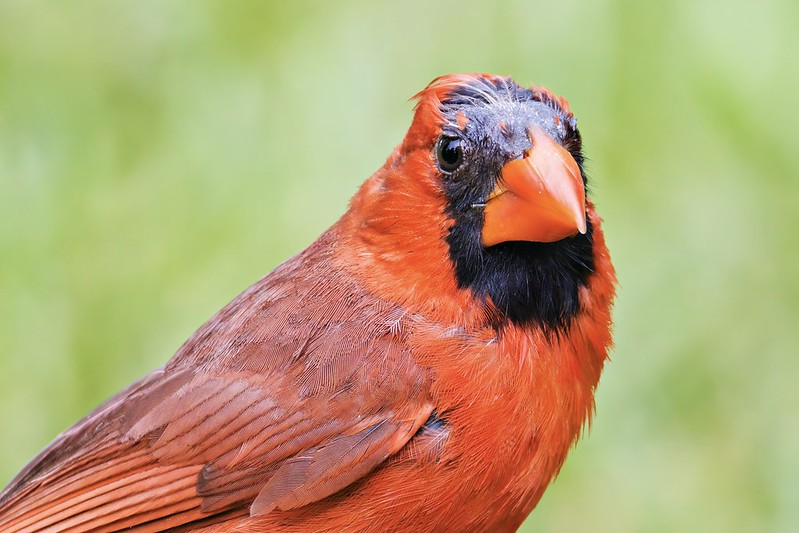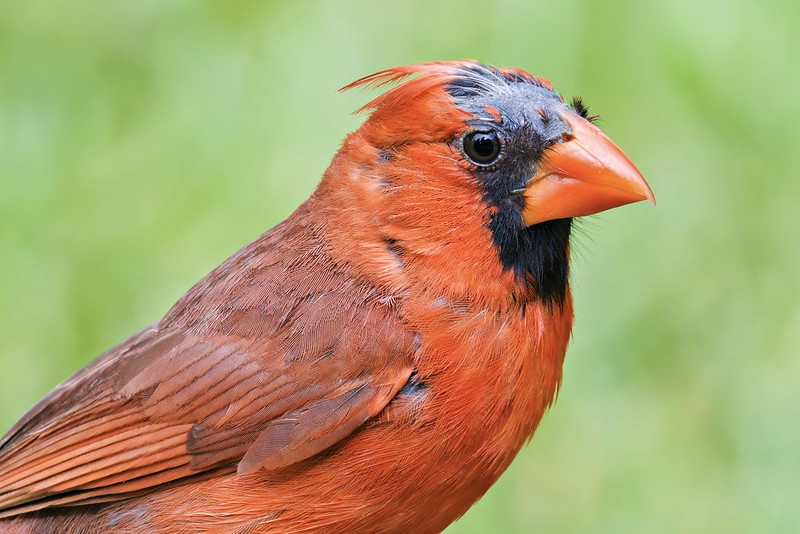I’ve been keeping an eye on a male Northern Cardinal that visits my yard here in Arkansas. Since June, he’s shown clear signs of molting, with noticeable feather loss on his head. It’s now early July, and while he still looks patchy, he remains active and alert. Seeing this kind of baldness earlier in the season prompted me to dig deeper into the possible causes.

What Causes Baldness in Northern Cardinals?
Normal Molting
Cardinals typically go through their annual molt in late summer or early fall, but some individuals molt earlier. This bird may be experiencing a more dramatic molt, where all the head feathers are lost at once. While it can look alarming, it’s usually nothing to worry about. Most birds will regrow feathers in a few weeks.
Off-Season Molting
Molting in June is uncommon but not impossible. Genetics, stress, or changes in the environment can all influence timing. As long as the bird continues to act healthy, it’s likely just an unusual molting schedule rather than a health problem.
Could It Be Parasites?
Feather mites or lice are another possibility. These pests can cause localized feather loss, especially on the head, where cardinals can’t preen effectively. If the baldness lasts longer than a typical molt or you notice scratching or lethargy, parasites might be the issue.
Illness or Poor Nutrition
Less frequently, persistent baldness may point to illness or a nutritional deficiency. I’ve been watching for other signs, like weak flying or disinterest in food, but so far, this bird seems perfectly capable. If other birds begin to show similar signs, I’ll start considering broader environmental causes.
Environmental Stress
June can bring intense heat here in Arkansas, and if this male cardinal has been nesting or feeding young, that extra stress might also play a role in feather loss.

Helpful Resource
If you’ve seen a bald bird at your feeder and are wondering whether it’s sick, this article from All About Birds offers a helpful breakdown of the most likely causes.
Watching and Waiting
I’ll continue to observe this cardinal and see if his head feathers begin to grow back over the next couple of weeks. It’s always a little startling to see such a vibrant bird look so different, but understanding what’s going on helps ease the concern.
